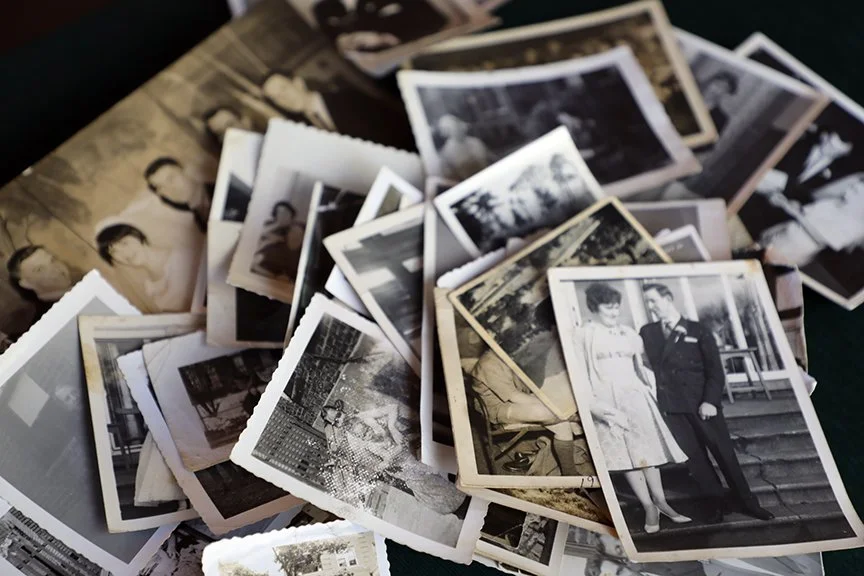In my work with individuals who hire me to write their stories, I regularly encounter a particular character that has its own special place in family history: the family business. Large or small, short-lived or multi-generational, family businesses are very common and come with their own set of stories. Just as with a person’s story, capturing a business’s story presents its own set of challenges.
The most obvious challenge is that a business is not a human being. A business can’t be interviewed; it can’t tell its own story. It has a story, of course—when it was started, what it sold, how it grew or failed—but the story will never be told in the first person. Instead, one must rely on research, institutional history, and personal memories.
Another challenge is that there may be different versions of the stories, depending on who is asked. Where does that leave the family historian? Let’s break it down…
Researching a family business
You may be lucky and already have historical documents about a family business in your files. Unfortunately, this is not something people always keep. The good news is that businesses often have their own set of vital records just like humans do—and those are kept by various government agencies.
Depending on what kind of business you are researching, it may be possible to find certain documents that were filed with the appropriate local authorities (such as a state’s Department of State). A common set of documents that are filed for businesses are articles of incorporation. In Pennsylvania or New York, for instance, it’s possible to look up these documents online going back as much as one hundred years. Even better, you can order copies. Articles of incorporation are a wonderful place to start since they will often list the names of the founders and any stockholders, as well as other facts like the year in which the company was started.
Not all family businesses warrant articles of incorporation. Small storefronts or restaurants wouldn’t necessarily have that kind of documentation. In this case, one might have better luck conducting research in the archives of a local organization, such as a historical society. This might produce photographs or other records mentioning the store. Local historical societies have deep knowledge on where to look for these kinds of records. Even if you have success finding formal documents filed with government entities, it’s always worth checking other sources, like historical societies, too.
Another important source of information is newspapers. It’s not uncommon for local businesses to be written up in local and even national papers. This is a terrific place to look for historical information about businesses, large and small. In newspapers, a researcher might find an ad, a story, and even photos… The Library of Congress has an excellent list of resources to help you find relevant newspapers, many of which are available online.
Capturing the stories of a family business
Once you have found all the materials you can about the business, you will still be faced with the task of telling the actual story of the business. Before you start writing a summary or analysis of the documentation, make sure you think about how to incorporate any oral history or interviews you have conducted.
It’s likely you will have access to two kids of stories:
Historical stories passed down from people who are no longer alive about a time that has passed;
Stories told by people who are still alive and can provide a first-hand account.
Historical stories about a family business
Historical stories should be written down as soon as possible. It’s amazing how much we think we know until it comes time to write it down. Suddenly, we realize we can’t remember certain information. Take the time to think of the important stories you already know about the family business and get them on paper. Once written, it’s easy to circulate those stories to other family members who may be able to provide more detail or correct certain facts.
Pro tip: It’s especially useful to have historical documents handy to help fill in gaps in knowledge or memory.
First-hand accounts
If there is anyone you can interview who still works (or worked) for the company, I encourage you to meet with those people as soon as possible. They will likely have historical and institutional knowledge in addition to their own experience at the company.
Conducting interviews can seem intimidating, but once you get the hang of it, can be quite enjoyable. Here are some quick tips on interviewing:
Ensure you have a reliable recording device and know how to use it.
Prepare your questions ahead of time.
Find a quiet place with minimal distractions for the interview itself.
Practice active listening; it’s harder than it sounds!
Don’t direct the subject; let him or her tell the story the way they want to.
Now that you have the first-hand accounts as well as the historical stories and documentation, you will be in good shape to tell the whole story of your family business. When combined with photos and old documents, family business stories provide a rich narrative for family members to share with future generations.
If you are interested in working on the history of your family business but run into some bumps in the road, be sure to check our “Find a Biographer” directory to see if someone is available to help you tell the story you want.
Clémence Scouten, based in the Philadelphia area, helps people curate and preserve their family history stories and materials, providing an array of end products from archived collections to memoirs.

























